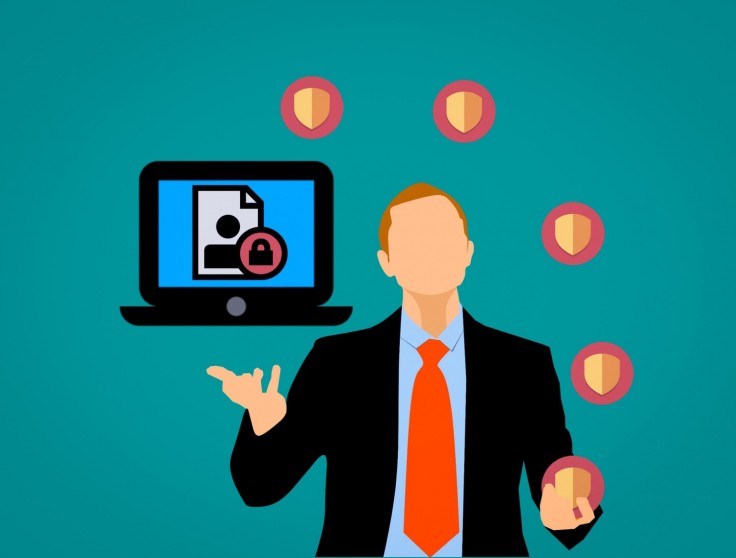
Introduction
Identity theft and account takeover are on the rise, according to a recent report by the FTC. The FTC found that over one million consumers were victims of identity theft in 2018, with thousands more falling victim every day. One of the most common ways this crime occurs is through account takeover, which happens when someone else gains access to your accounts-usually through stolen user names and passwords-and uses them for their own purposes. As long as you take steps to protect yourself against identity theft and be mindful of suspicious emails requesting information from you (more on that below), there are several things you can do if your online accounts have been compromised:
The FTC has issued a warning that account takeover is increasing.
The FTC has issued a warning that account takeover is increasing. Account takeover occurs when someone else gains access to your account, usually through stolen user names and passwords. Account takeover can happen with any online service provider you use, not just financial institutions.
Account takeover is when someone else gains access to your account, usually through stolen user names and passwords.
Account takeover is when someone else gains access to your account, usually through stolen user names and passwords. Account takeover can happen with any online service provider you use, not just financial institutions.
If you notice suspicious activity on your account, contact the company immediately so they can help you secure the information and protect against further damage.
Account takeover can happen with any online service provider you use, not just financial institutions.
Account takeover can happen with any online service provider you use, not just financial institutions.
It's important to know that while banks and credit unions are the most common targets of account takeover, it can happen anywhere you have an account. Examples include social media sites like Facebook or Twitter; shopping sites like Amazon or eBay; gaming sites like Xbox Live or PlayStation Network (PSN); email providers like Gmail and Yahoo Mail; cloud storage services such as Dropbox or Google Drive; travel websites like Expedia or TripAdvisor; insurance companies like Progressive Insurance...the list goes on!
If your personal information was compromised in one of these types of data breaches, then there's a good chance someone could try taking over your accounts elsewhere online as well.
Anytime you see an email that looks like it's from a legitimate organization but asking for personal information, don't click on links or reply to the email.
If you suspect that an email is fraudulent, don't reply to it. Also, don't click on any links within the email. Instead, call the company in question directly and ask if they sent you an email asking for personal information (such as account numbers or passwords). If so, take steps to secure your account immediately by changing all of your passwords and adding multiple layers of protection such as two-factor authentication.
If you think your account has been compromised:
● Contact all three credit reporting agencies (Equifax, Experian and TransUnion) to place fraud alerts on your files; this will let lenders know there may be suspicious activity occurring with them so they can take additional steps before approving new credit requests made under your name.* Update all online accounts that require logins with new usernames/passwords; especially those tied into financial institutions.* Consider placing freezes on all consumer credit reports--but only do so if necessary because these freezes will prevent anyone from accessing data about yourself without express permission from each bureau first.* Review statements carefully each month for signs of unauthorized transactions including charges made against debit cards linked directly into bank accounts where no one else has access
If you think your account has been compromised, call the company in question as soon as possible.
If you think your account has been compromised, call the company in question as soon as possible. Be prepared to answer security questions and be ready to provide some personal information that only you would know. If you're still unable to access your account after speaking with customer service representatives, contact law enforcement immediately.
If you've been a victim of identity theft, contact the fraud department at the three major credit bureaus and put a fraud alert on your accounts. You can also place a 90-day freeze on your credit report, which will prevent anyone from opening new lines of credit in your name.
Take steps to protect yourself against identity theft and be mindful of suspicious emails requesting information from you
● Do not click on links in emails. You should never be directed to a website or asked to provide personal information via email. If you are, it's likely an attempt at account takeover identity theft.
● Don't reply to emails asking for personal information, even if they appear to come from your bank or credit card company (and even if they contain a link). The same goes for phone calls requesting that you provide such details over the phone--it's safer to call back using an official number found through Google or another search engine than by responding directly from the email itself!
● Call the company in question as soon as possible if you think your account has been compromised--and ask them what steps they will take against future attacks like this one!
● For businesses - use ID verification services.
Conclusion
The best way to protect yourself against account takeover is to take steps to protect your identity from being stolen. This includes being careful about what information you share online, monitoring your credit report for signs of fraudulent activity and making sure that all of your accounts have strong passwords with different characters (like letters and numbers) so they're harder for hackers to crack. You should also be on the lookout for any suspicious emails asking you for personal information--if something doesn't seem right then don't respond!









